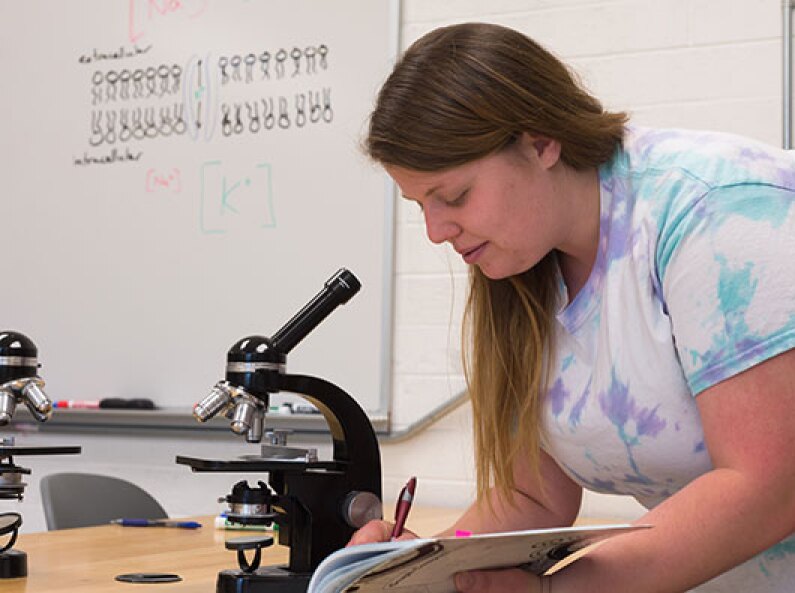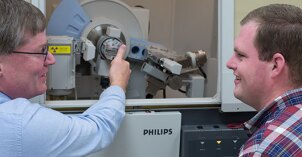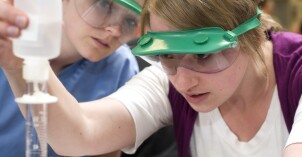
Making Real World Connections
The Physics Department offers students a solid foundation in both classical and modern physics. Biophysics students take an additional 12 credits in biology. Together, these courses will build the bridge between biology and physics. Students will be able to apply their knowledge of the physical world to the study of life.
Faculty are always on hand to help guide you in class and on campus. Our courses are designed for meaningful connections, helping you get to know the faculty personally. You'll also have the chance to be mentored by a faculty member to help you find the most rewarding career path for you.
Faculty are always on hand to help guide you in class and on campus. Our courses are designed for meaningful connections, helping you get to know the faculty personally. You'll also have the chance to be mentored by a faculty member to help you find the most rewarding career path for you.
"The physics faculty are invested in the students. They make themselves available for questions and one on one mentoring. They also expect great things of their students, and provide them with valuable skills geared toward graduate programs and research."
HEATHER T.,
BYU-I GRADUATE
Highlighted Career Paths
Graduates with a degree in Physics, with an emphasis in Biophysics, have a wide array of rewarding careers before them. Check out some of the top careers students get with this degree or explore more career options in I-Plan.
Neuroscientist
Neuroscientists work with the brain. They build computer models called neural networks to model how the brain and nervous system work, leading to new understandings of how visual and auditory information is processed.
Imaging Technician
Biophysicists have developed sophisticated diagnostic imaging techniques including MRIs, CT scans, and PET scans. Biophysics continues to be essential to the development of even safer, faster, and more precise technology to improve medical imaging and teach us more about the body’s inner workings.
Environmental biophysicist
Environmental biophysics measure and model all aspects of the environment from the stratosphere to deep ocean vents. Environmental biophysicists research the diverse microbial communities that inhabit every niche of this planet, they track pollutants across the atmosphere, and are finding ways to turn algae into biofuels.
Getting Started in this degree
If you are interested in Biophysics, start with one of the following major-specific courses






